We are on day six of the catastrophic fires that have hit the North Bay, up above San Francisco. I have spent much of the past week volunteering at the local fairgrounds to help with the evacuated horses and being surrounded by other livestock and animals, from Highland cattle and emus, to donkeys, goats, and all species in between. It has not only tested my amateur horsemanship skills, but my people skills. And it has given me a stark and tough education in how we, as horse owners, need to train and prepare our horses to be ready for any type of disaster.
Weeks ago we saw terrible images of horses stranded in the floods around Houston after Hurricane Harvey, we’ve heard heartening stories about horses returning to their burnt-out pastures just this week, and sadder stories about those that didn’t make it. As their human guardians, we have an obligation to our domesticated horses to prepare them for the worst. I’ve learned a lot this week about what that looks like in the face of an imminent threat.
We also have an obligation to make life easier for the amazing unofficial ‘trailer army‘ – peopled by equestrians who are compelled to get out there and rescue horses and other animals left behind when their owners had to flee the flames. This story in the SF Chronicle is fairly typical of what many of these folks had to deal with on an all-too regular basis: rescuing horses who are unaccustomed to trailers, not regularly handled and who haven’t been trained in the fundamentals.
1. Have a disaster plan
In the busy course of our day-to-day lives, it is hard to imagine catastrophic events and harder yet to think about planning for that imaginary disaster. But many of us learned this week, that having a plan laid out is vital. Where will your horse go should its current living situation change out of the blue? How will it get there? If you’re not around, is your horse identifiable? Do you have insurance to cover large medical bills? Do you have good photographs that show distinctive marks and coloring in case you become separated from your horse? Do you have photographs uploaded of any important papers? Now is a good time to get this in order.
2. Will your horse readily load in a trailer?
Even if you think you’ll never need to take your horse anywhere, or you don’t own a trailer, you need to find a way to give your horse practice loading. Getting into a trailer can be daunting for many horses at the best of times, so just imagine how it goes at the worst of times. Today I watched two horses seriously freaked out about getting into a trailer. Sadly for them, today’s experiences will only reinforce their fear of the box on wheels.
If there is a trailer at your barn, ask if you can hitch to it (using twine as a break-away), feed your horse near it, or put its bowl just inside the door (never load into a trailer that isn’t attached to a truck). Walk your horse near the trailer and through narrow spaces so it becomes used to the idea of it. There are plenty of videos on YouTube that can give you tips if you’re not working with a trainer.
Not only will your horse thank you for this training, but the phenomenal volunteer evacuation teams—like Norcal Livestock Evacuation—who worked so tirelessly during our recent fires.
3. Ensure your horse is used to being handled by others
It’s great that your horse does everything for you, but does it behave when being handled by people it doesn’t know? I like to hand-off my mare, Quintessa, to my son as often as I can because he handles her differently and doesn’t know her as well as I do. Same with the trainers at our barn. Does your horse do well with strangers like the vet or the farrier? If not, find lots of opportunities to socialize it.
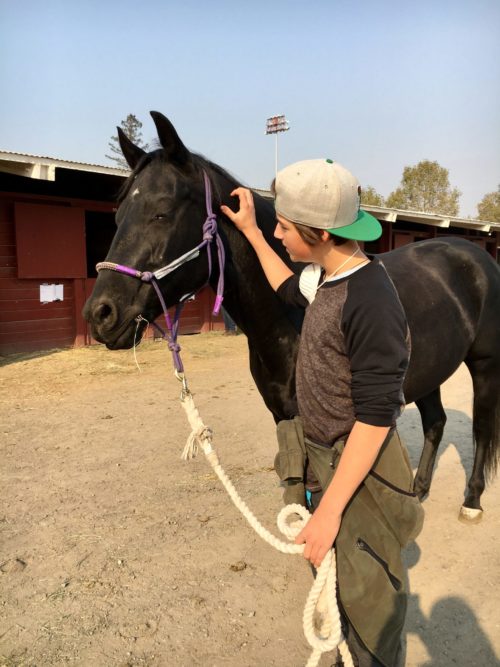
Monkey walks Rio, a horse he loves from his summer camp, Cloverleaf. Their barn was destroyed in the fire and she was evacuated to the fairgrounds in Santa Rosa.
4. Get your horse microchipped
Until I had to face the possibility that the speed of a fire could mean leaving my horse behind, it hadn’t occurred to me to get her microchipped. I put that right this week – it costs less than $100. We also painted our phone numbers on the sides of our horses using a Paint stik, and on their hooves using Sharpies, so that we could easily be contacted in the event they got lost.
5. Give Your Horse Stall Time Occasionally
In the event of an evacuation, you are likely going to end up at a fairgrounds or another large facility that has horse stalls. If your horse has never experienced being in a stall and typically lives in a pasture, this is going to be another stressor among all the other stressors. Try and find an opportunity for it to practice spending time in a small, enclosed space.
6. Stay up-to-date on vaccinations
I can guarantee you that a week ago, not a single owner who has been evacuated to the fairgrounds in Santa Rosa, Solano or Petaluma this week, predicted that their horse would suddenly be among up to 300 other horses. This is why keeping up-to-date on vaccinations is crucial. Also important if you go to shows, or other gatherings of unknown horses.
7. Horsemanship: handle and exercise your horse
While it may seem ridiculous to say, I have come across many horses this week who clearly are rarely handled, or exercised. And a couple of owners who have few horsemanship skills. Needless to say, this makes things even more difficult in a crisis when a stranger may suddenly become responsible for caring for your animal, or you need to move your horse quickly. Horses always need their humans to be leaders, and that is never more true than in an emergency. I am going to stick my neck out here, and suggest that if you’re afraid to go near your horse, or for some reason, unable to exercise it, then you should find it a more suitable home.
8. If you have to leave your horse behind…
Nobody wants to consider this possibility, but as many experienced this week, there just wasn’t time to evacuate their horses before fleeing from the fire. It seems the same was true around Houston. Tragically, I have seen photos of horses left tied up to drown in the rising floods, or trapped in stalls or paddocks. This gives them was no way to fend for themselves. If you can—and always act to preserve your own life first—open gates and untie horses. Remove nylon halters and fly masks so they don’t get caught on things, and especially when fire is involved, as they are flammable. Your horse’s instincts will give it the best chance to preserve itself.
With all my heart, I hope that you never have to enact a disaster plan, but you will never regret being prepared. I pray that our current fires are brought under control quickly. The devastation of these gorgeous counties is heartbreaking.
Please consider making a donation to the UC Davis Veterinary Catastrophic Need Fund. They are doing amazing work.
And Norcal Livestock Evacuation just got its non-profit certification so it can find a way to support the army of volunteers with trailers who showed up for long hours, in highly dangerous conditions. You can donate here.
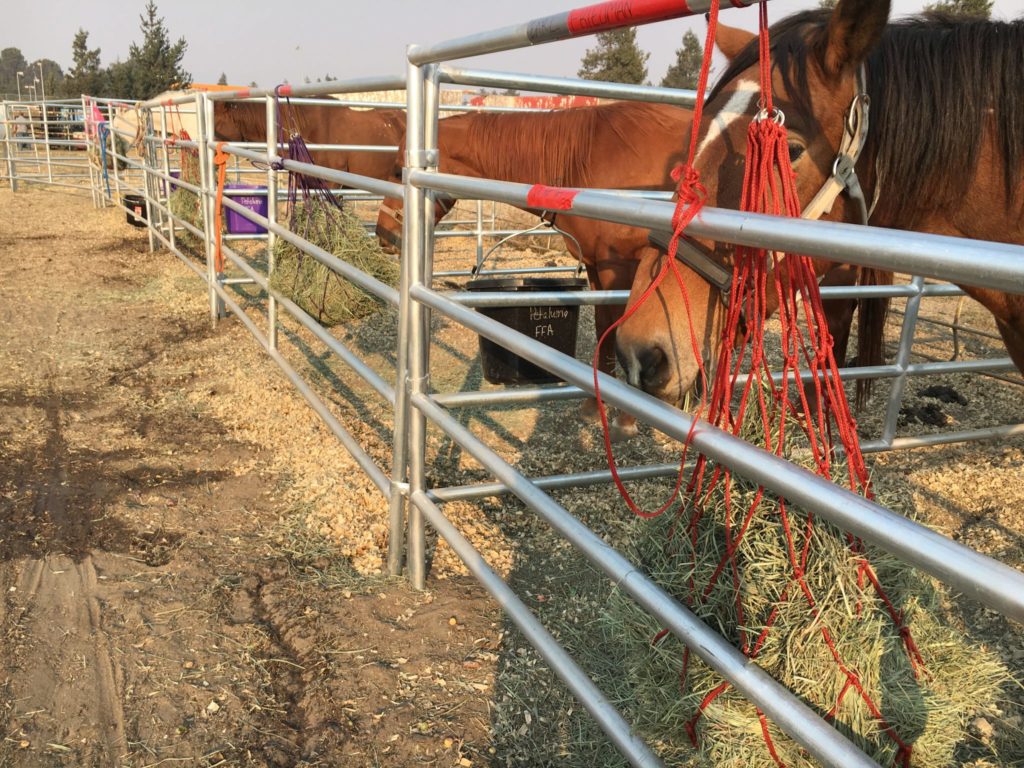
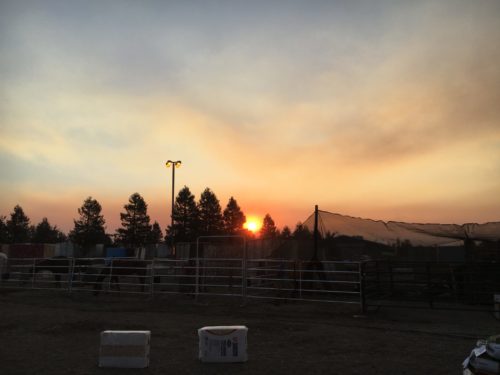
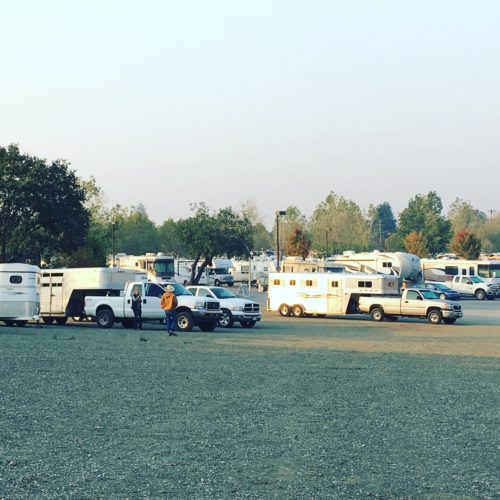
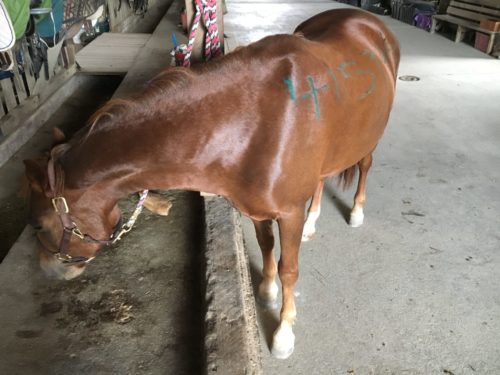
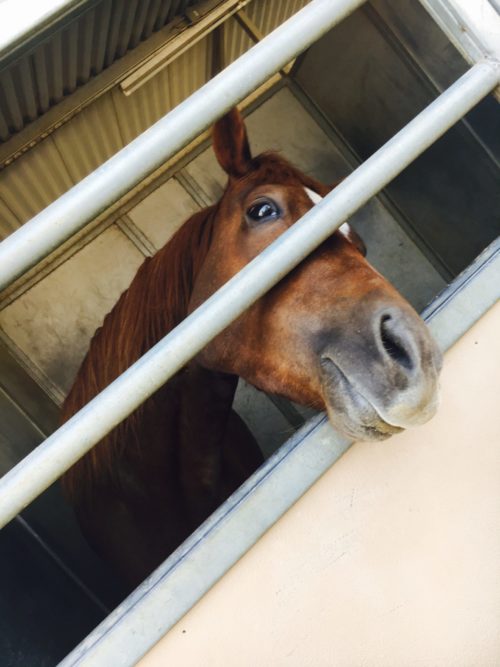




Leave a Reply